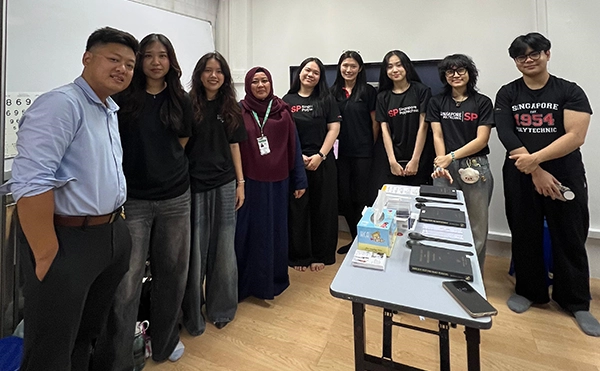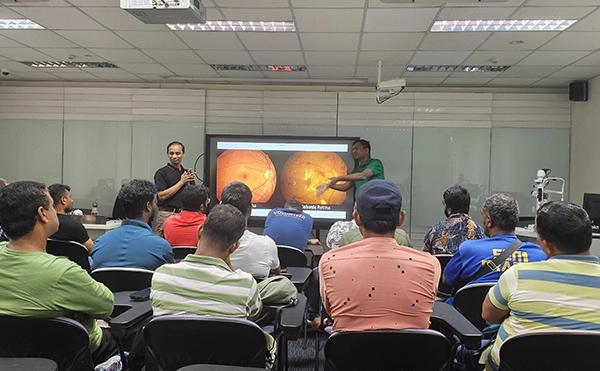In January 2025, SP Diploma in Optometry (DOPT) students demonstrated their commitment to improving community health by conducting vision screenings aimed at identifying and addressing visual impairments across different age groups. These screenings were part of initiatives focused on helping our aging and myopic nation by offering essential eye care services that many may not be aware of.
The first vision screening took place on 19 January 2025 in collaboration with the Muhammadiyah Association for Children at the Bukit Batok Resident’s Committee facility. The event targeted children who may not have regular access to eye exams, potentially leading to undiagnosed vision problems that could affect their education and daily activities.
Twelve students and one staff member conducted eye screenings for approximately 50 children, examining each child for common visual impairments such as nearsightedness, farsightedness, astigmatism, color vision deficiencies, and binocular vision abnormalities. Through a series of non-invasive vision tests, the students were able to identify early signs of eye conditions and provide recommendations for corrective measures. Additionally, the event provided students with opportunities to communicate and work with young children, while also educating the children about the importance of maintaining good eye habits.

DOPT students and staff volunteer at Muhammadiyah Association
On 25 January 2025, 22 Year 2 DOPT students participated in a vision care event targeted at migrant workers, in partnership with the Interact Club of Sembawang. The migrant workers who were found to have visual impairments were referred for follow-up consultations and given prescriptions when necessary. This initiative not only addressed immediate vision concerns but also raised awareness among the migrant worker community about the importance of regular eye health checks.

SP Optometry staff doing a sharing with migrant workers on the importance of eye health
Both vision screenings held in January were successful in making a meaningful impact on the participants, whether they were children from diverse backgrounds or migrant workers in need of proper eye care. Through these screenings, the students helped improve the quality of life for many individuals who might otherwise have gone without eye care. More importantly, they reminded everyone of the significance of regular eye exams and early intervention in preserving good vision and preventing further complications.